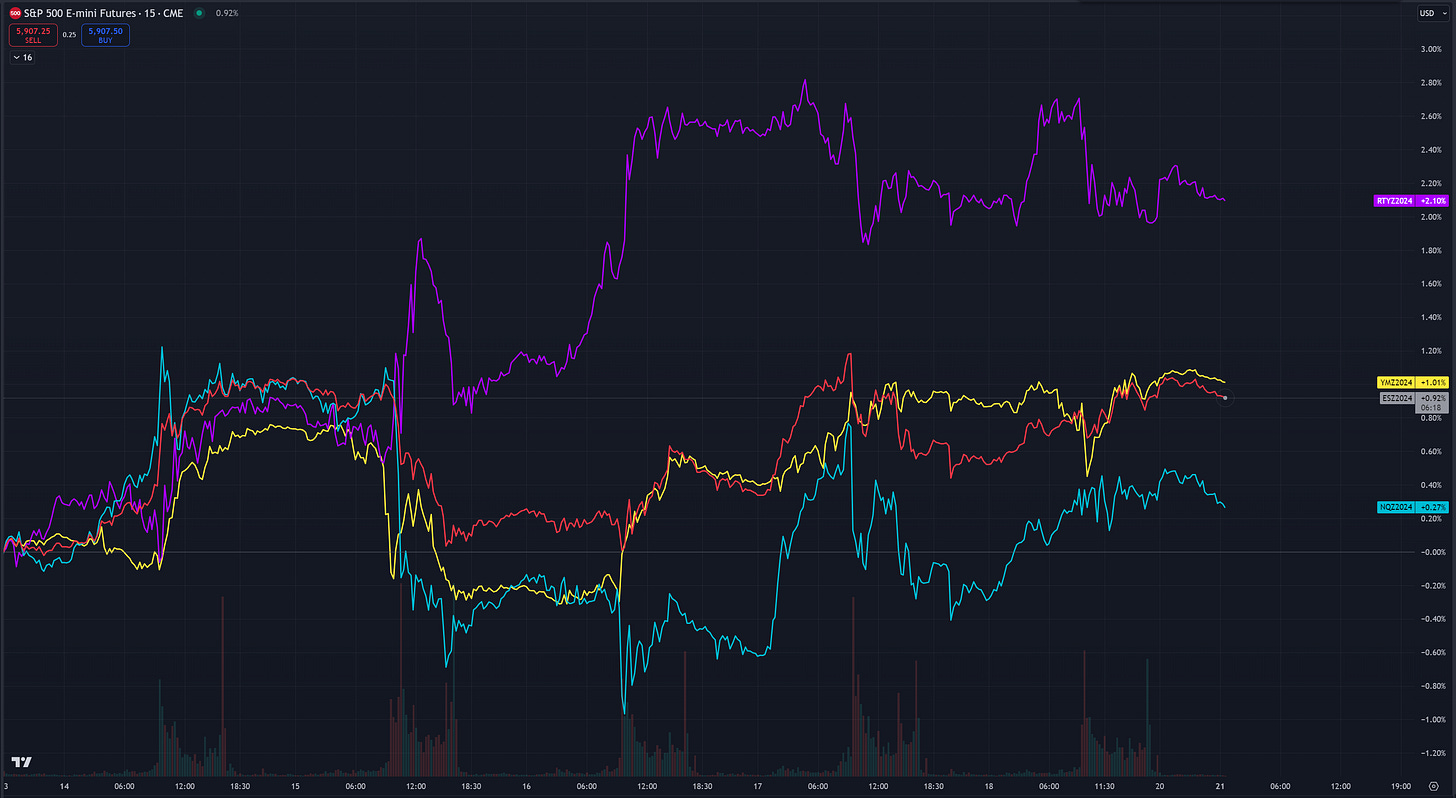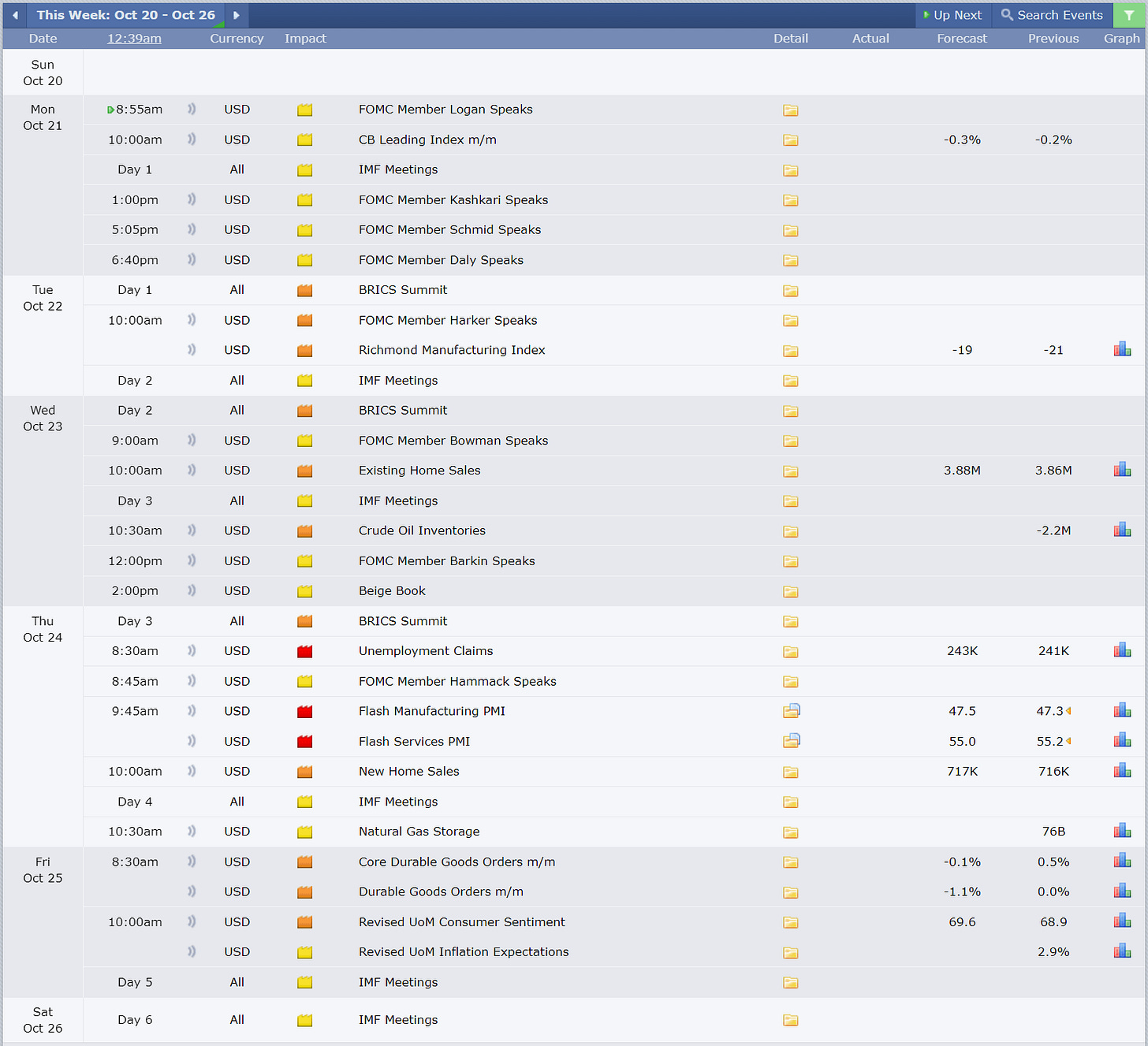Weekly Recap: Small-Caps Outperform While Tech Struggles
This past week, small-cap stocks stood out as the top performers, gaining nearly 200 basis points and recording their highest weekly close since 2021. In contrast, tech-heavy indices, particularly the Nasdaq (Q’s), were the weakest performers. This shift was triggered by the negative earnings surprise from ASML, despite Taiwan Semiconductor (TSM) reporting strong results afterward. Even though ASML's report initially weighed on tech, small-caps managed to hold firm throughout the week.
Considering the 10-year Treasury yield finished just below 4.1%, signaling no significant easing of financial conditions, small-caps remained resilient. The lack of a rush back into tech, despite TSM’s strong numbers, may suggest that small-caps are poised for continued outperformance against other indices.
Economic Data for the Coming Week
Looking ahead, the upcoming week is relatively quiet on the economic data front. The key reports to watch will be existing home sales on Tuesday, along with the usual jobless claims on Thursday. Additionally, we’ll get PMI data, though most other releases will be smaller and less impactful. A few Fed speakers are also scheduled, but overall, it should be a calm week in terms of economic releases.
Last week, the phrase “policy mistake” was frequently mentioned, as growth has continued to recover since the August slowdown. Retail sales data also exceeded expectations, signaling stronger consumer activity. U.S. retail sales for September came in at 0.4% month-over-month, versus the previous 0.1%, while core retail sales posted an even higher 0.5%, compared to 0.1% expected.
The recent rebound in growth has taken many by surprise, shifting the narrative from recession fears back toward inflation concerns. As we move into next week, it’s worth monitoring how this growth trend plays out, especially with the upcoming home sales, jobless claims, and PMIs.
Jobless Claims and Growth Trends
Jobless claims remain in a predictable range, with low 200,000s on the lower end and mid-200,000s at the upper end. The recent uptick has largely been attributed to the impact of hurricanes in the South, so there’s little cause for alarm for now. However, it’s still wise to stay cautious, with the next Non-Farm Payroll (NFP) report in November expected to provide clearer insight into the job market. It will help determine whether October’s job gains were a fluke or part of a larger re-acceleration in employment.
We have remained skeptical of the August growth scare and consistently highlighted the supportive fiscal environment and ongoing government spending. The Fed has also shown a willingness to prioritize growth over inflation control, as we expected. On top of this, China’s recent stimulus measures have further bolstered global economic growth. With both U.S. presidential candidates planning increased spending, fiscal support is unlikely to wane anytime soon, which should continue to create a bifurcated market. The Fed’s response to potential labor market weakness will be another key factor to watch moving forward.




